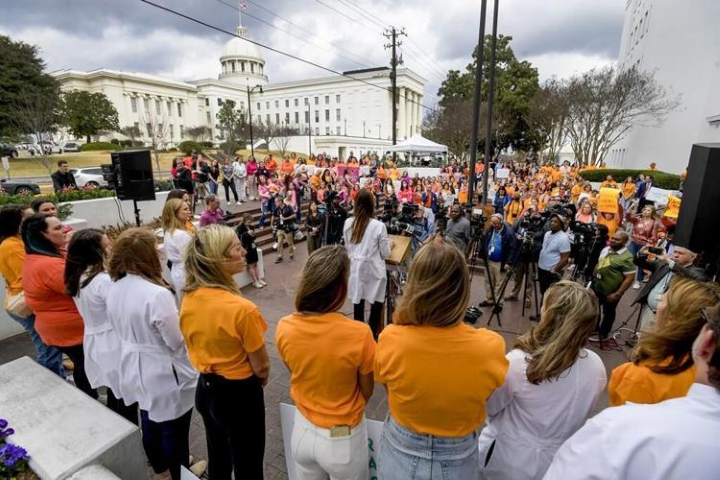
(Mickey Welsh/ The Montgomery Advertiser via AP)
Alabama legislators are moving swiftly to address concerns regarding in vitro fertilization (IVF) services in the state, which were halted following a controversial court ruling equating frozen embryos to children. The state Senate and House committees have both endorsed identical bills to shield providers from legal ramifications stemming from the destruction or harm of embryos during IVF procedures. The proposed legislation aims to provide immunity to clinics, alleviating fears of lawsuits and criminal charges raised by the recent Alabama Supreme Court decision.
The court ruling, which permitted couples to pursue wrongful death lawsuits for lost embryos, prompted a statewide pause in IVF services and ignited a debate about the legal status of embryos. Critics argue that treating embryos as children under the law could have severe implications for fertility clinics, leading to widespread uncertainty among patients and providers.
Alabama lawmakers view the proposed immunity legislation as a critical step in reopening IVF clinics to support families seeking fertility treatments. Republican Representative Terri Collins, a key sponsor of the bills, emphasized the urgency of restoring services to affected families.
The court ruling's aftermath has left many patients, like Beth and Joshua Davis-Dillard, feeling frustrated and uncertain about their reproductive options. The proposed legislation seeks to shield both providers and patients from legal liabilities related to IVF procedures, ensuring that individuals can pursue fertility treatments without facing undue legal risks.
However, the proposed legislation has drawn criticism from some quarters, including the American Society for Reproductive Medicine, which believes that the bills fail to address the fundamental issue of embryo status under the law. Democrats have proposed alternative measures to clarify the legal status of embryos, but Republican lawmakers have not yet acted on these proposals.
The IVF crisis underscores broader political tensions surrounding reproductive rights in Alabama. The state's anti-abortion constitutional amendment, passed in 2018, has become a focal point in the debate over embryo rights. While some Republicans advocate for stricter regulations on IVF clinics, others are wary of infringing on patients' reproductive freedoms.
In navigating these complexities, Alabama lawmakers face the challenge of balancing competing interests and ideologies within their party while addressing the immediate concerns of patients and providers affected by the IVF controversy.















